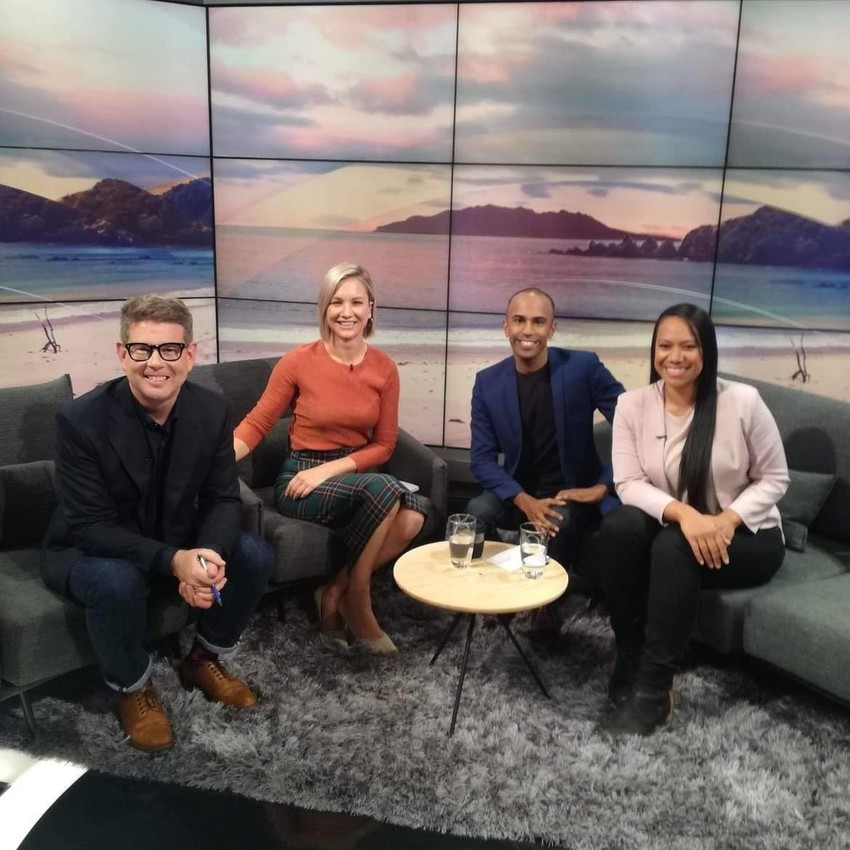WOMEN OF THE ISLANDS - INDIRA STEWART
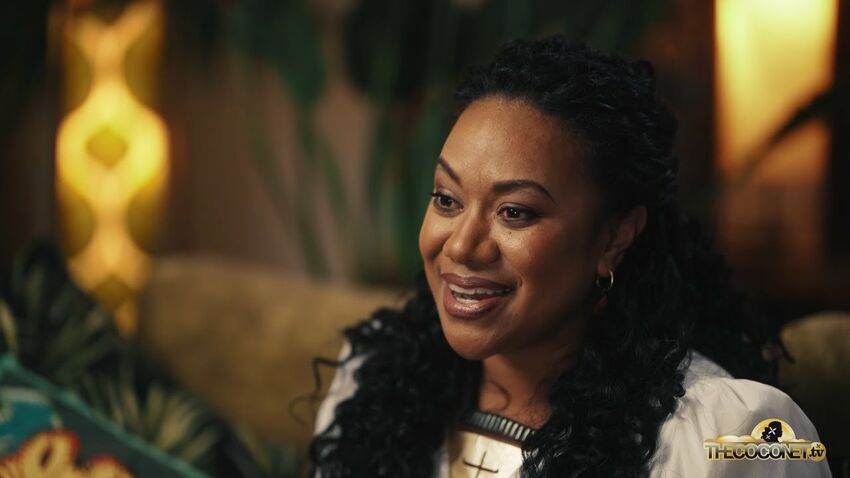
INDIRA STEWART
JOURNALIST
TONGAN / FIJIAN
Tongan documentary maker and journalist Indira (Moala) Stewart has made history in the 2025 Voyager Media Awards by having two documentaries in finals of the 'Best Long Form Documentary' category, and featuring as talent in the Coconet's 'Myths and Maidens' piece which is the third finalist in the category.
Best Current Affairs (long) or Documentary
Believers & Betrayers: Inside the Shincheonji ‘Cult’ – Indira Stewart, Will Green, Charlotte Mckenzie | TVNZ
Gang Mums – Indira Stewart, Rewi Heke, Jorja Parsons, Tom Hood | TVNZ
Myths & Maidens – Lisa Taouma | Coconet TV, RNZ
Indira's work is also nominated in two other categories at this year's Voyager Media Awards
Best Current Affairs (short)
Children of Prisoners – Indira Stewart | TVNZ
Le Mana Pacific Award
Children of Prisoners; Believers & Betrayers; Israel and the Pacific – Indira Stewart | TVNZ
What does this say to you in terms of having Pasifika stories recognised in broad sector spaces?
That they are valued! Our stories are part of the taonga and history of Aotearoa and the voices of our communities hold an important space, particularly as Tamaki Makaurau Auckland is often touted as the largest Polynesian hub in the world. I've never doubted that our voices matter in media but I've always been aware that our own Pasifika storytellers haven't always had the resources or the platforms to tell our stories to a wider audience.
I'm also aware that our industry is shrinking and over the past few years we've lost some incredible storytellers - including ones I have looked up to throughout my career. I'm grateful for those who have mentored and supported me over the years and recognitions like these remind me of all the support I've been privileged to have - including from our non-Pasifika allies - who have supported me throughout my career,
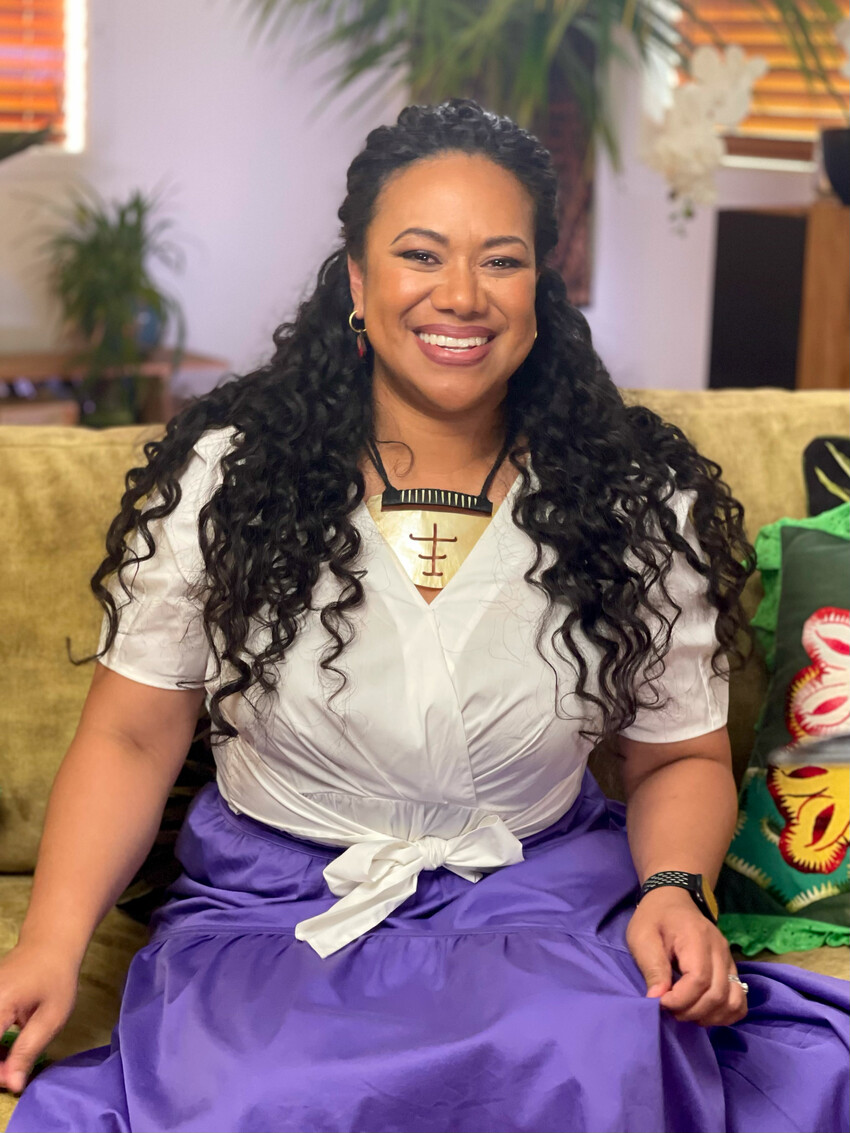
Tell us about the projects that you are a finalist for - how proud are you that you were able to bring them to screen?
Children of Prisoners and Gang Mums are both series that featured voices I felt had rarely been given a platform. With Gang Mums I made a point of not being seen on camera at all - because allowing these women to have autonomy and hold their own spaces was really important. I had hoped audiences would watch with an open mind because I knew their stories would challenge stereotypes. I felt lucky to be let into their worlds - those who allowed me to interview them challenged me as a journalist, a woman and a mother.
For myself and our camera operators (Rewi Heke and Will Green) every story we get to do teaches us something powerful just as much as we hope the audience learns something new too. The Shincheonji Cults investigation involved people we really care about and came at a personal cost. It challenged my faith and my friendships and it's a story that still deeply affects me today. Balancing conflicts of interests in our Pasifika community is always a delicate dance because you are often so closely connected to people in your stories but as a journalist, integrity and impartiality is key and something that's always been really important to me. I've got to give props to my bro Will Green (Camera operator) who's journalistic nouse and editorial judgement gave viewers crucial context, making that story what it was.
Collaboration in our team has always made our storytelling stronger and I've been lucky to work both Will and Rewi who have brought the best out of my work. My reporting on Israel's relationship in the Pacific was one of those projects that reminded me that even at a global level of conflict, the Pacific region still plays a key part in diplomatic worldwide relationships. That story took me down some fascinating rabbit holes and is a portrayal of some of the generational divides that exist in our communities when it comes to politics and faith.
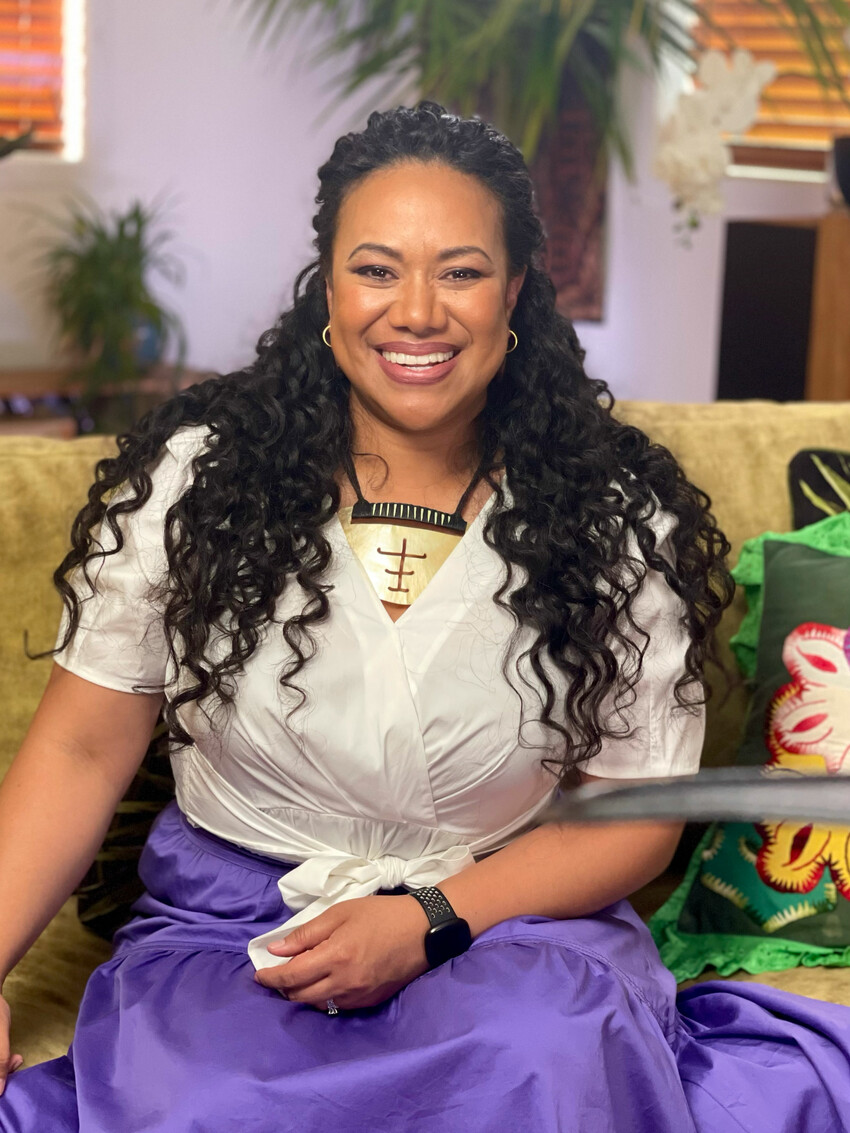
There are so few Pasifika people recognised in these spaces, or being given the privilege to operate in them - why is it so important that we persevere in getting our stories made?
Because we've got a different perspective of the world. Diversity of ethnicities and cultures adds variety and balance to the contexts of the worlds we live in and see on TV and online. Who gets to tell the world who we are? Why not us? And for those of us who have built those connections and relationships in our communities, it's even more special to be trusted to have that access.
That access is always a privilege whether we grew up Pasifika or not because even our own people don't have to tell us their stories. In the past, mainstream media haven't always been kind to our communities so being in the industry means we get an opportunity to bring balance and fairness where it is due. But it always comes with the responsibility of getting it right - pasifika or not - and our communities rightly hold us to a higher standard when we do.
Tell us why long- form documentary making has become a passion for you - what are the rewards of being able to make documentaries as a journalist?
I've loved being a news reporter throughout my career and a presenter/newsreader in studio but the real fulfilment has been indepth storytelling and that's because of the luxury of TIME. Time is a currency I get more of when making documentaries or longform stories - I get more time to get to know people, to be around them, to learn about all the different nuances in their lives that they allow me to get a glimpse of. All of that gives me the luxury of telling a story with more context and a deeper insight.
Generally, I think I just really like people and the relationships I've made in my reporting have added so much value to who I am as a person.
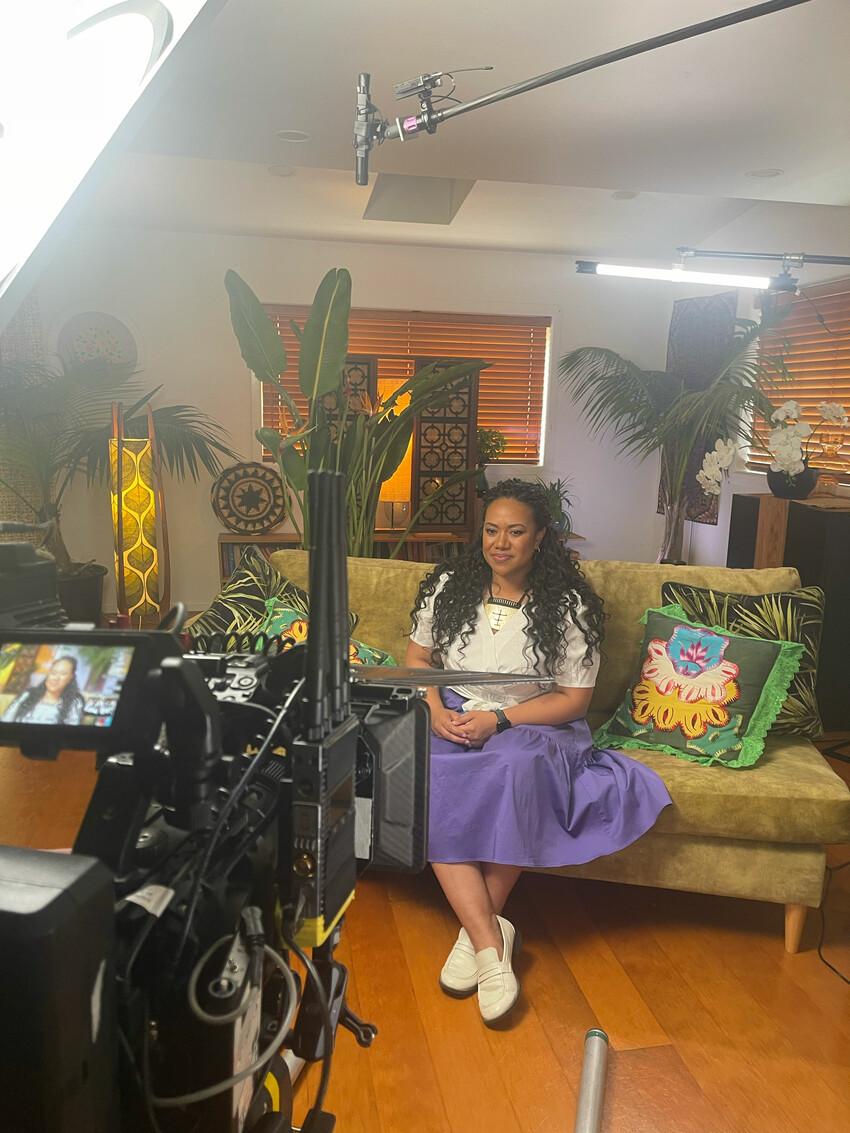
Tell us about the most recent work that you've made and the joys of being able to bring that to the world?
We've just finished our 2-part documentary celebrating the legacy of Polyfest, looking back at its history and journey of survival over half a century. We had a pretty tight knit team - Rewi Heke, Cam Williams and Paul Deady - and what I've loved most about my brothers that I work with is their patience, respect and care for those we interviewed and followed. I got my first job as a reporter covering Polyfest for Tagata Pasifika at 15 and it inspired my passion for telling our stories. It was a full-circle moment for me to do a documentary on something that I had been a part of personally as a student performer in highschool, reporter over the years and even now as a Polyfest Mum. Our Polyfest documentary was a career highlight for me.
The most precious lesson I learned was about our relationship as Pasifika with Māori who were supporting us to embrace our cultures at a time where NZ didn't really want us here. Polyfest was birthed in at the peak of the dawn raid era in 1976. Today, it is still not easy to find our voice in Aotearoa in some spaces but I'm in awe of the giants who broke moulds before us and have shown us the strength and value of whanaungatanga as tauiwi in Aotearoa.
Having cut her eye teeth as a journalist and newsreader in prime time at Radio NZ,on the 'Coconet TV' and 'Tagata Pasifika', Indira is rapidly making her mark as a significant journalistic voice in Aotearoa's wide media spectrum.
I’m Tongan Fijian, born in Tonga and raised in New Zealand. My father’s family is from Tatakamotonga in the village Mu’a. My mother’s fijian side is from Kadavu and the village of Tu’anuku in Vava’u, Tonga. I’m a Journalist working in News and Current Affairs. I spent the last 6 years mainly focusing on news around New Zealand’s Pacific community and the international Pacific region. I feel privileged to have covered the Pacific realm because it’s so rich with stories but there aren’t enough people telling them. The stories I’ve covered have made my work meaningful and have made me a stronger journalist. It’s tough covering Pacific people - many of our people aren’t always open to talking or offending others especially because of the way our communities are built - everyone is connected. But being silent can be dangerous when you’re already among the most vulnerable in western society. We need to be able to speak up to stand against injustice and to hold people accountable when needed. Journalism for me has often been about giving my community a platform to have a voice.
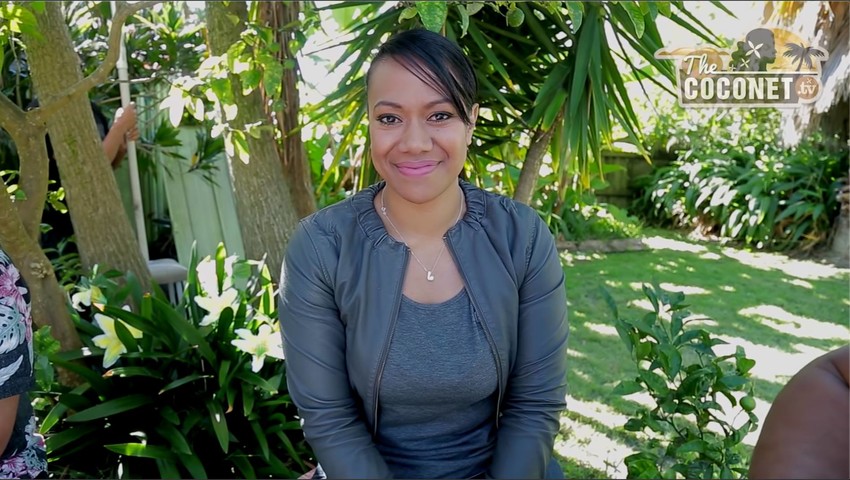
Indira for The CoconetTV
You're were a journalist for RNZ - what were the pathways that led you to where you are now?
When I was a child I used to make up my own tv shows and pretend to be hosting. Sometimes it was a cooking show, other times it was a news programme. It was totally fakamuna (make-believe/pretending) to me. I had presented a couple of segments for Tagata Pasifika (TVNZ Pacific programme) in high school but I never thought about pursuing anything in journalism. Until my second stint at University I studied Communications. One year I chose a journalism class simply just to get extra credits but in my first journalism lecture, the tutor got us to analyse a column about cultural identity written by Tapu Misa. It was the first time I’d ever seen a brown woman writing in mainstream media. I took that piece home and kept reading over it and it was a pivotal moment for me that inspired me to become a journalist.
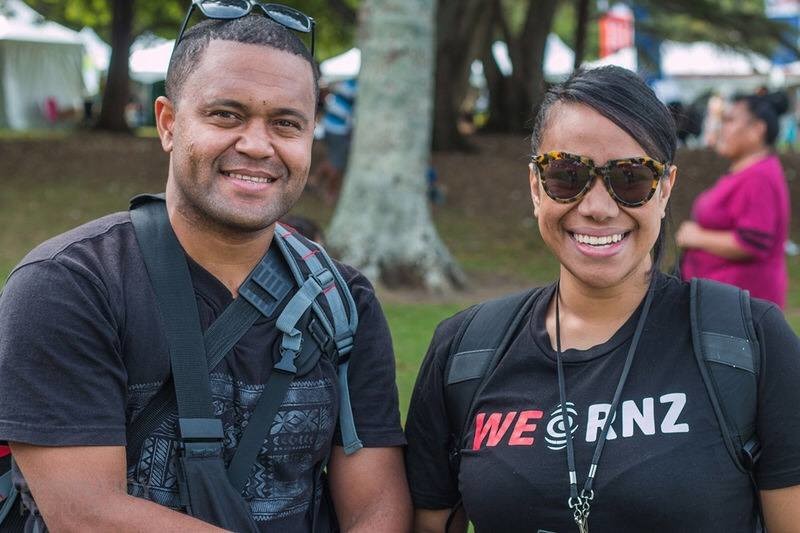
You've been hosting an early morning show on RNZ - can you tell us a bit about it?
First Up is a news and Current affairs programme at 5am every week day. To be honest, I’m still getting my head around having to wake up so early!! Lol We launched back in May last year. Our programme is a mix of news and quirky feature stories. We want to break some stories on the programme but also take a look at some lighter interesting stories around New Zealand and the world. I’m blessed to be a part of an incredible team that has worked hard to produce the programme.
.
How important is it to bring a Pasifika perspective to what you do?
It’s very important. The only way anyone can have a balanced worldview is if you’re open to hearing other perspectives. For a long time, our mainstream newsrooms have lacked a diverse range of perspectives but that’s slowly changing. We have more and more voices coming to the table. On some level, we can all do better at understanding each other and I’m grateful for some of my palangi colleagues who have been open to listening to my perspective. Not everyone’s been open - there have been times where I’ve really had to fight for my own community to be represented correctly in some stories. I haven’t won every fight either but it’s pushed me to grow a backbone and be able to back myself in a newsroom. I don’t take it lightly that I have a responsibility to represent my community as best I can in mainstream atmospheres.
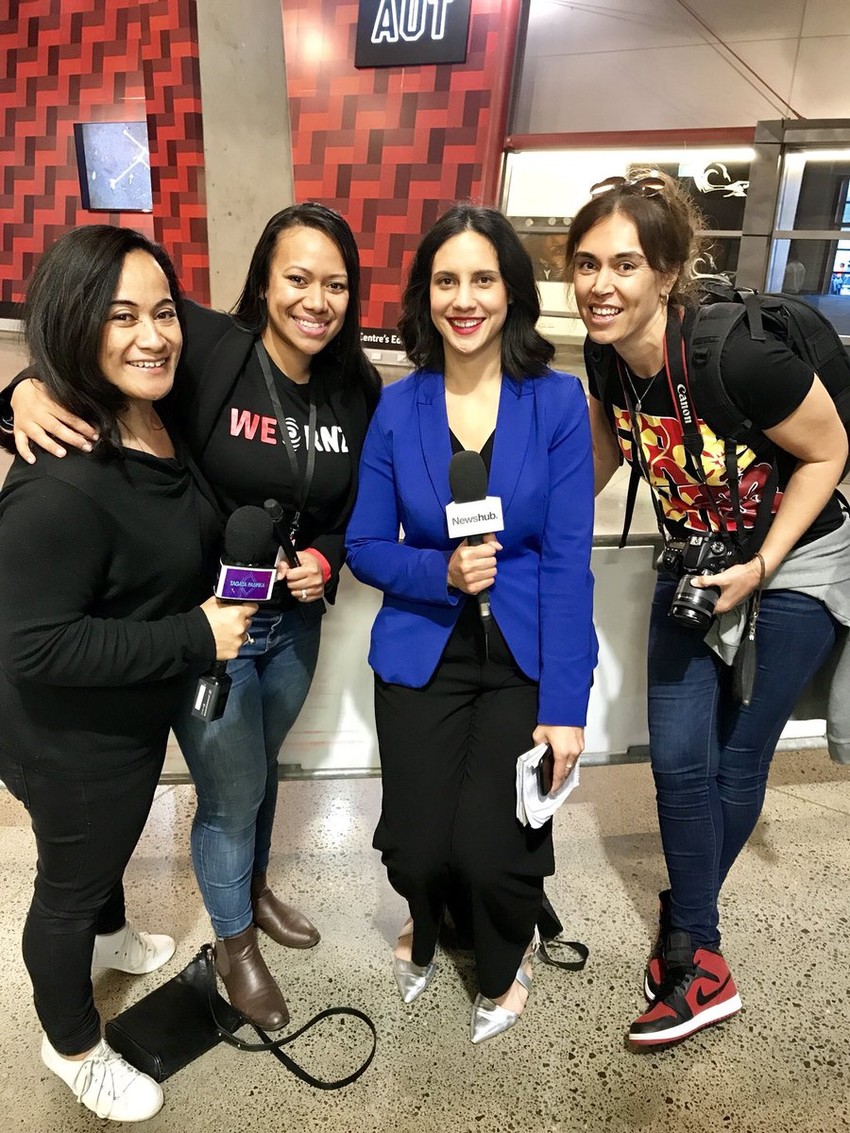
How has being a Pacific Islander impacted your life and work?
Because I come from such a big community, I’ve continued to build my life with a strong sense of community and village. In the newsroom I love calling all my colleagues, no matter what nationality they are, ‘sister’ or ‘brother’ - and I love it when they feel comfortable to call me the same. Coming from a collectivist (village-type) culture means that everything you do is not just about you. It’s about everyone you carry with you and those who have gone before you. You also remember that every door you open is going to allow others to go through after you. It’s an empowering way to live - knowing you’re never walking this journey alone. It also gives you a reason bigger than yourself, to do better.
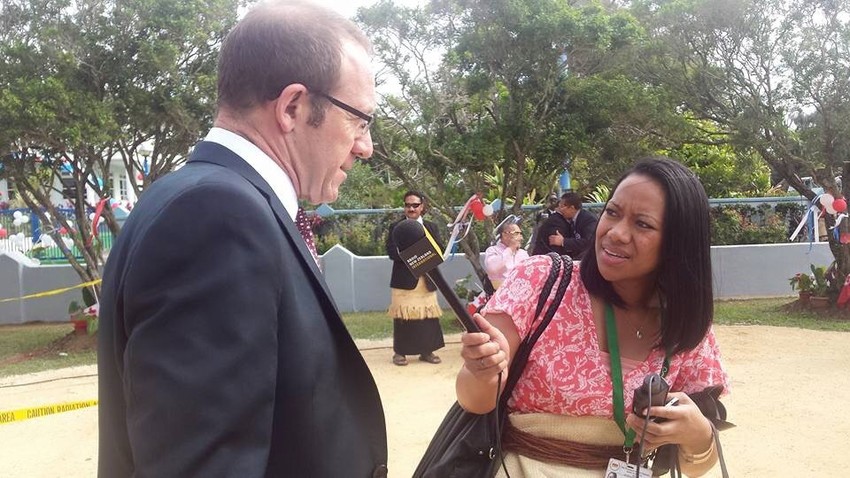
What have been some of your most challenging and some of your most rewarding moments in your field?
There was a period in my life where I was a solo parent. That was definitely a character building season for me - but I wouldn’t change it for the world. It made me work harder than ever. I struggled and sacrificed but it taught me humility and to appreciate everything we have. Working to provide for my kids meant I spent a lot of time away from them when they were younger - time that I can never get back. So when I come to work, I don’t come to play. I have to work hard because I’ve got to make every second count for me and my family and to make it worth the sacrifice. I chase stories that are meaningful and make it worth my while. I’ve now remarried and my husband and I have a blended family with four children together. After everything we’ve experienced in our own personal journeys, the best and most rewarding gift has been being able to give our kids a united home. The biggest reward for me would be to see all our children go further than us and do greater things for themselves.
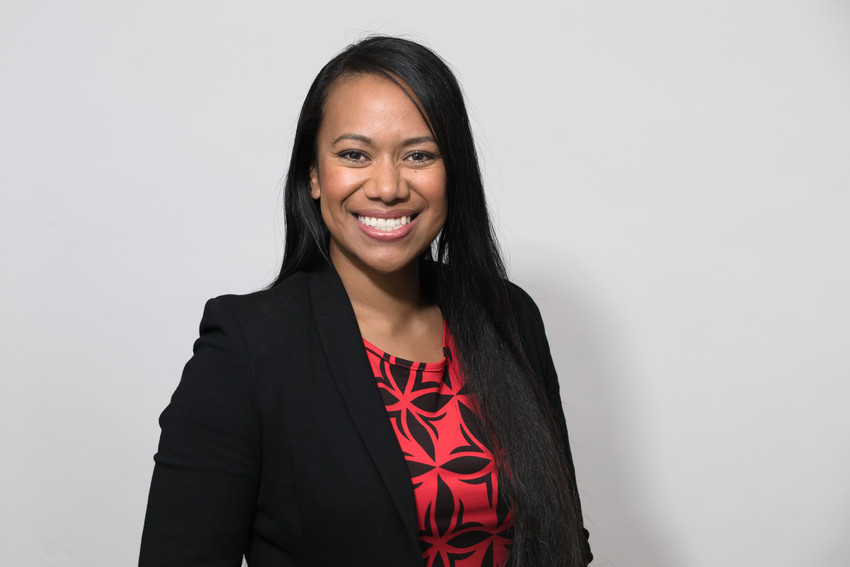
What is the best piece of advice you've been given?
John Campbell - he has been an empowering mentor. In a television studio during an ad break recently, in front of sound operators, camera men, co-hosts who were also in the room - he stood up and poured encouragement into me telling me to be proud and bold as a brown woman in mainstream media. It’s not every day you’ll see a highly successful and influential white man of privilege stand up in a room to lift up and empower a brown woman like that. It’s a moment I’ll never forget.
